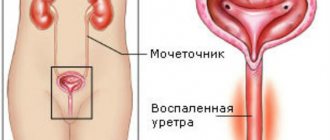Symptoms of the disease
It is not always possible to recognize the disease at the initial stage, since with age, to one degree or another, any person’s personality changes and the first symptoms of dementia are often mistaken by non-specialists in the medical industry for ordinary manifestations of old age.
At an early stage, the disease can be distinguished by a change in character - the patient’s negative traits worsen. People with senile dementia are characterized by frequent mood swings, hysterics, gloominess, isolation, and grumpiness.
As the disease progresses, senile patients completely stop caring for themselves and even forget about basic hygiene. Very often, elderly people with dementia suffer from pathological greed; they steal all sorts of rubbish and rubbish into their home, do not throw away and do not allow other family members to throw away unnecessary things. If a person with such a disease is alone, it often happens that his house is completely filled with rubbish and this is discovered only when the smell bothers the neighbors.
Elderly people with dementia living in families cease to be interested in their loved ones and take care of them, they forget the faces of their own children and grandchildren, they are indifferent to the people around them. In patients with dementia, instincts become more acute and socialization decreases.
The meaning of the word insanity
Examples of the use of the word insanity in literature.
And against the background of general stupidity and boundless insanity, into which our great power finally and irrevocably, decisively and, as always, headlong, plunged, some degenerates, as some policeman said, talking with another detained beatnik, did not go along with everyone along a wide, flat road, but were looking for narrow, crooked paths leading to the side.
And while all this bureaucratic insanity was pouring out from high positions, Bosnia and Herzegovina plunged into even greater chaos than Croatia in 1990-91.
The paperwork required of us when writing notes, with my self-confidence, which was not naked ambition, seemed to me like insanity, which I hoped to avoid.
Everyone doesn’t like these graphomaniacs - especially the bosses, since they make an appointment for every appointment, with everyone they come across: with the head of the zone, with the prosecutor, with academician-landowner Terenty Maltsev, who came to meet with the criminal masses, even with former thieves in law, living under the supervision of the cops and being transported by them to the zones, where they, having fallen into senile insanity, depict the harmfulness of life under the law of thieves.
Gladstone was not entirely in his right mind, Russell was on the verge of senility, and Palmerston simply lost his head.
By the time of the holiday in Pitsunda, Father’s father, Puppy, aka Podpidnik, had already become very small and fell into infantile insanity, because time was dragging backwards.
The messenger has long since fallen into insanity, and this regenerate, vile little soul, is capable of anything.
No, no, no,” Jones shielded himself with his palms from the journalist’s accusations of retrogradeness, old man’s grumpiness and insanity, “God forbid me from blaming our golden youth.”
Now I was even ready to listen to the Serbo-Croatian insanity that slipped from the interlocutor’s tongue.
To explain what the Tethys River was and why I decided that Silenus had fallen into senile insanity, it was not necessary to remember what my grandmother talked about in the evenings around the fire.
Bribery, corruption, selfishness, and bureaucratic insanity seem to represent an insurmountable obstacle to reform.
The reformers understood the essence of the problem and two years ago they wanted to carry out a palace coup and push aside the dowager empress, who was falling into senility.
Our current clergy did not say a word when Pope Pius the Ninth, who had fallen into insanity, proclaimed the dogmas of infallibility and the Immaculate Conception.
Having transformed death into a life-affirming principle, having made a saving fiction out of a monster, having exhausted our arguments against the obvious, we can still find ourselves victims of insanity: such is the revenge of our bile, our nature, this demon of common sense, which, having dozed a little, wakes up to expose the absurdity and ridiculousness of our will to self-blindness.
Something about the uniform, saluting, making beds and other army insanity, but it is good in peacetime, not during war.
Source: Maxim Moshkov library
Symptoms of senile insanity in women and men
The most common symptoms in women are the following traits: tearfulness, self-pity, excessive (manic) suspicion, stubbornness. Women with senile dementia often have little control over their food intake: they experience an unhealthy appetite, forget what they have already eaten, and may eat food without feeling that they are actually full.
Men suffering from dementia are distinguished by grouchiness, a tendency to moralize, and suspicion; their selfishness, jealousy, and boastfulness become aggravated. If the frontal part of the brain is damaged in an elderly person, a syndrome such as hypertrophied sexuality and swagger may develop.
Symptoms manifest differently in different people, and, of course, for some time after the onset of the disease they are not so noticeable. But the disease progresses very quickly, and it is impossible to do without qualified medical care.
The sooner you detect the symptoms of this insidious disease in your loved one and begin treatment, the longer he will be able to maintain independence and socialization. The progression of dementia in the elderly leads to a complete loss of will, abilities and complete loss of personality.
Causes of dementia
Dementia in older people cannot be called a disease. This is a syndrome that manifests itself as a result of the onset of a severe disorder of a person’s nervous activity. These disorders appear due to organic brain lesions.
Senile dementia is a consequence or complication of diseases that provoke the death of cells in the cerebral cortex.
Such diseases include
:
- Alzheimer's disease (characterized by decreased intelligence)
- Dementia with Lewy bodies (impaired movement and thinking)
- Pick's disease (characterized by destruction of the cerebral cortex)
- Parkinson's disease (motor activity disorder)
- Huntington's disease (genetic disease of the nervous system)
The syndrome can also develop due to systemic lupus erythematosus (characterized by disorders of the immune system). Also, the cause of senile dementia can be multiple sclerosis or Yatsenko-Cushing syndrome.
Other causes of senile dementia:
- Vascular diseases of the brain
- Frontotemporal lobar degeneration
- Acute deficiency of B vitamins
- Metabolic disorder
- Kidney or liver failure
- Multifocal dementia
- Progressive supranuclear palsy
- Brain abscess
- Hematomas in the brain
- Neuroinfection
- Previous traumatic brain injuries
- Viral encephalitis
- Chronic meningitis
- Neurosyphilis
- Acquired immunodeficiency syndrome
Doctors say that senile dementia can be a consequence of hemodialysis (a method of extrarenal blood purification for acute and chronic renal failure).
In rare cases, senile dementia appears as a result of alcoholic encephalopathy. In this situation, brain cells die due to excessive consumption of alcoholic beverages over a very long period of time.
Stages of senile dementia
There are three stages of the disease, which can be roughly distinguished by symptoms:
- Lightweight (mild symptoms) - impairment of intellectual abilities with preservation of independence and previously acquired skills.
- inability to perceive new information and decreased intelligence;
sudden mood swings, depression;
- memory problems (a person forgets dates, names, recent events);
- insomnia or poor sleep due to anxiety;
- loss of interest in favorite activities.
- Moderate - worsening of primary symptoms and cognitive disorders, decreased critical perception, addition of new symptoms.
- at this stage, a person experiences difficulties in using familiar household items (household appliances, door locks, intercom, etc.);
the patient cannot concentrate on something for a long time;
- memory deteriorates greatly (an elderly person does not remember recent events, does not remember what he has just read, forgets the names of his loved ones and good friends, and may get lost in an unfamiliar place);
- aggressive behavior followed by apathy;
- inadequate perception of the surrounding world intensifies and instincts become more acute (a person becomes suspicious, it seems to him that something is being plotted against him, etc.);
- neurological disorders are possible - urinary incontinence, falls, hallucinations, epileptic seizures.
- Heavy - loss of independence, self-control and memory; at this stage, the patient requires constant monitoring and care.
- the patient may become aggressive, not recognize loved ones, and his behavior becomes inappropriate;
a person does not remember his name and age, does not recognize himself in the mirror;
- speech becomes very poor, reading and writing skills disappear;
- a person becomes incapable of self-care; he must be fed, changed, washed, and under no circumstances left unattended.
What should relatives of a patient with senile insanity do?
The prognosis of senile dementia is unfavorable and it cannot be cured. The process of mental disintegration of the sick person lasts from one to ten years.
However, with timely diagnosis and proper treatment, the progression of the disease can be significantly stopped and the patient’s quality of life can be improved. The task of relatives is to have a patient and condescending attitude towards the elderly and provide him with comfortable conditions. It must be remembered that personality changes occur not through the fault of the elderly person, but precisely because of illness.
Regular intake of prescribed medications, as well as a comprehensive program of exercises and a properly organized daily routine, regular walks and exercises will help your patient to alleviate the course of the disease as much as possible.
Consequences of senile dementia and their prevention
The main complications of senile dementia are behavioral factors. These include uncontrolled aggression for no reason, depressed mood, sleep disturbances, and depression. Agnosia often occurs - the inability of the patient to independently orient himself in space. As senile dementia progresses, patients often stop recognizing friends and loved ones. Over time, motor and delusional hallucinations arise, the most common among them being anxiety due to apparent persecution.
To prevent negative health consequences in people with senile dementia syndrome, their independent motor activity should be minimized, all objects that could pose a health hazard should be removed from their reach, the patient should be provided with round-the-clock supervision and control, and the patient should be surrounded by a calm environment that cannot cause harm to the patient. with senile dementia as an external stimulus.
The quality of the patient’s life and its duration will directly depend on the quality of provision of all services to the patient to prevent, treat and prevent the negative consequences of senile dementia. It is important to remember that older people with senile dementia are not always aware of their actions, and even ordinary processes and household items can pose a mortal danger to them and those around them. It is worth protecting patients with senile dementia from using any household items and devices associated with increased danger, excluding independent visits to crowded places, and extremely protecting them from uncontrolled contact with children.
We provide proper care in boarding houses for the elderly in the Moscow region.
With the proper approach, timely treatment and compliance with doctor’s orders, an elderly person with senile dementia can live a long and happy life without remembering his illness. The quality of treatment and subsequent life of such a person directly depends on the actions of his loved ones and relatives.
Help for pensioners with dementia in boarding houses "Longevity"
Caring for dementia patients at home is extremely difficult and requires a lot of effort and patience. Not everyone can bear all the hardships that fall on the shoulders of the relatives of the sick person, and conditions do not always allow for proper care and medical assistance at home, which is constantly needed. Often in such a situation, all family members are stressed, and their usual way of life is disrupted.
Private boarding houses for the care of the elderly “Longevity” are ready to provide assistance and care to people suffering from senile insanity at any stage of the disease, including bedridden patients. Here, a whole team of professionals works with patients, providing round-the-clock monitoring and care, as well as the necessary treatment, diet and psychotherapy.
Treatment
In this case, we are talking only about maintenance therapy, since it is impossible to completely cure this disease. All medical measures are aimed at inhibiting the development of death of brain neurons and improving the patient’s quality of life. If your health condition allows, treatment can take place at home. However, you need to understand that such patients need almost constant care and supervision.
Drug therapy may include taking the following drugs:
- nootropic (in the initial stages of disease development);
- antidepressants;
- small doses of tranquilizers;
- sleeping pills.
- sedatives.
The dosage and regimen of taking such medications can only be prescribed by the attending physician. Unauthorized use of such drugs is strictly prohibited.
In addition to taking certain medications, general recommendations should be followed:
- All dangerous objects should be removed from the patient’s access;
- Whenever possible, the patient should be involved in physical exercise, communication with relatives and close people;
- Every day, especially before going to bed, you should take walks in the fresh air.
It is strongly recommended that treatment be carried out at home, since being in a hospital can cause stress and nervous tension for the patient, which will only worsen the course of the disease.
You should also pay attention to the patient's nutrition. The diet in this case implies the following:
- Heavy foods should be excluded from the diet - fatty, fried, overly seasoned;
- nutrition should be balanced;
- food consumption should be frequent (at least 4 times a day), but in small portions and with an interval of 3 hours between meals;
- if the patient has signs of cachexia, then the consistency of the food should be liquid or puree.
What is senile insanity and how to treat it correctly, only a neuropsychiatrist or psychiatrist can say. It should also be understood that it is important not only to comply with all the doctor’s recommendations, but also to the psycho-emotional situation of the patient.
Depending on the stage of development of the disease, the attending physician may prescribe a course of psychotherapy, which will help the patient restore or form certain behavioral reactions. However, at the third stage of development of the disease, this is no longer advisable.
The advantages of living in boarding houses are:
- comfortable conditions created specifically for elderly and sick people;
- high-quality meals 5-6 times a day, taking into account the characteristics and stage of the disease;
- complete care and control over guests 24/7, including hygiene, feeding and taking prescribed medications;
- availability of special equipment for care and rehabilitation;
- experienced and competent staff working on the principle of an individual approach to each guest;
- special rehabilitation programs for patients;
- medical and psychological assistance, organized leisure.
Our private boarding houses in Ramenskoye, Vidnoye, Moscow, Zelenograd, Belozerki are always ready to receive guests and provide the elderly with any necessary assistance.







